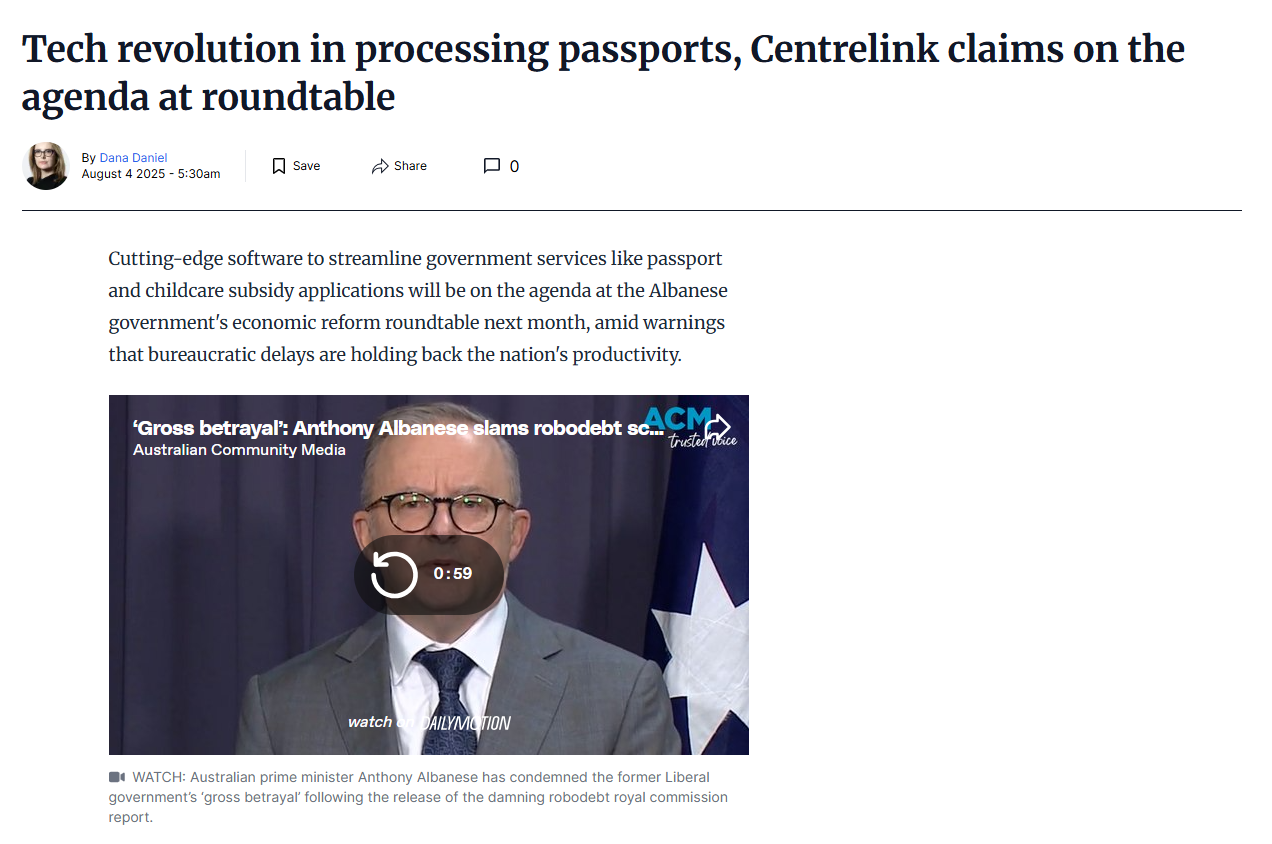Media
|
News
August 4, 2025

Cutting-edge software to streamline government services like passport and childcare subsidy applications will be on the agenda at the Albanese government's economic reform roundtable next month, amid warnings that bureaucratic delays are holding back the nation's productivity.
Billionaire Atlassian co-founder and Tech Council of Australia chair Scott Farquhar last week called on "all levels of government" to make their services available via an API (application programming interface), which can allow different software applications to communicate and exchange data.
"Let's be honest, governments aren't exactly known for delivering world-class customer service," Mr Farquhar told the National Press Club on Wednesday.
"You shouldn't be thinking about what's possible today, but what's going to be possible in the future."
Mr Farquhar is one of the selected invitees to the Economic Reform Roundtable to be hosted by Treasurer Jim Chalmers, which will have a session devoted to artificial intelligence and another to government services on August 19 to 21. Opposition treasury spokesman Ted O'Brien will also be in attendance.
Government Services Minister Senator Katy Gallagher said technological advancement would "change the way we deliver public services".
"We are actively exploring opportunities to improve the delivery and effectiveness of government services [and] will always prioritise technology solutions that make it easier to engage with government, while also protecting the information and data that the government holds."
Opposition government services spokesman James Paterson said Australians "just want the best services delivered as efficiently as possible and the private sector also has a role to play in that", with "strong safeguards" to keep data secure and protect people's privacy.
"We should be leveraging the best technology available to ensure citizens' access to government services is much easier to navigate than it is today."
Senator Gallagher said the APS - which was "already a highly skilled and effective workforce" - also stood to benefit from "the opportunities arising out of technological innovations".
An API is a set of rules and protocols that allows applications to request services and exchange data from other applications, acting as an intermediary to allow integration and functionality between systems - such as connecting a mobile app to a database, or enabling a website to use third-party services like payment gateways or social media feeds.
"It's what your phone uses when you check your bank balance or an online store to allow you to track your delivery in real time," Mr Farquhar said.
He said there were already examples of the technology being used to speed up interactions with government services, such as accounting software that used APIs to lodge business activity statements (BAS) or tax returns, but that many areas of the bureaucracy took an outdated approach, such as the courts.
"You've got expensive lawyers training years to sit there refreshing web pages. They re-enter the same data again and again," he said.
Interacting with the courts, renewing a license, applying for a passport and claiming the child care subsidy "should all be possible electronically and embedded in third-party applications," he said.
"And these shouldn't be seven-year consulting projects. Modern tools mean that we can complete these in weeks and months, not in years. We should be creating digital agents for every interaction with government."
He warned that, without change, governments were "going to increasingly become the bottleneck" to productivity.
"We, as a nation, need to skate to where the puck is going," he said.